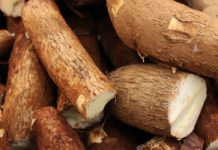What Is the Fertility Diet?
Some women prefer to abstain from alcohol and other substances in order to improve their chances of conceiving, but did you know that some foods might boost fertility? While the concept of “fertility meals” may be unfamiliar, how you nourish your body is crucial while attempting to conceive. Infertility affects one out of every ten couples around the world. Although the science of infertility therapy has advanced substantially over time, there is still a long way to go in terms of improvement. This indicates that we are still dealing with infertility, and there are a slew of circumstances beyond our control. When it comes to healthy fertility, everything from age to lifestyle to genetics plays a role. This is where a well-defined diet for better fertility comes into play. Unlike other factors such as age, genetics, and other medical issues, one’s diet is completely under one’s control. Furthermore, eating a well-balanced diet does not necessitate medical intervention; it is a completely natural strategy to assist your body to boost its reproductive potential. Noted that a good and balanced diet is merely one of the various factors that contribute to increased fertility. If you’ve been diagnosed with infertility, you’ll need to look at therapies including hormone therapy, IUI, and IVF.
5 Healthy Fertility Foods to Eat
Here is a list of healthy fertility foods you can eat if you are trying to get pregnant.
Dairy Products
When you’re trying to conceive, it’s a good idea to eat a lot of dairies (milk, yogurt, and cheese). Including dairy in your preconception diet is beneficial to not just your bones, but also to your reproductive health. So drink your milk, eat your yogurt, drink your smoothie, and munch on your cheese. Most of the time, sticking to low-fat or fat-free dairy products makes sense, especially if you’re attempting to reduce your bottom line, after all, extra weight can weigh on fertility. However, preliminary evidence suggests that splurging on a serving of full-fat dairy every day may help women who are having trouble ovulating.
Protein
 Fish has a higher protein content than red meat. Protein, zinc, and iron are all vital building blocks for a healthy pregnancy, therefore chicken, turkey, pork, and lean beef are excellent sources. Avoiding blubbery portions can help you avoid gaining weight, which can affect estrogen levels and lead to organochlorine pollution. These are compounds found in animal fats that have been related to a delay in conception.
Fish has a higher protein content than red meat. Protein, zinc, and iron are all vital building blocks for a healthy pregnancy, therefore chicken, turkey, pork, and lean beef are excellent sources. Avoiding blubbery portions can help you avoid gaining weight, which can affect estrogen levels and lead to organochlorine pollution. These are compounds found in animal fats that have been related to a delay in conception.
Dark Leafy Greens
We should always consume dark green veggies on a daily basis, but they’re especially crucial when attempting to conceive. Kale, spinach, and Swiss chard all include important prenatal minerals including calcium, iron, fiber, and folate which can help prevent birth abnormalities. You can also incorporate greens into your fertility diet in a variety of ways. Raw in salads, sautéed, blanched, and steamed are all options. Kale chips can also be made from roasted kale, whereas you can add spinach to smoothies; only a handful will suffice.
Complex Carbs
Have you ever encountered a carb you didn’t enjoy (and what estrogen producer doesn’t)? It’s time to start being a little picky. Consume complex carbs (whole grains, legumes, veggies, and fruits) rather than processed carbs whenever possible (white bread, white rice, refined cereal, sugary treats of all types). This is because there could be a link between your carbohydrate intake and your fertility.
Plant-Based Fats
Moderately consume healthful, plant-based fats. Nuts, avocados, olive oil, and grapeseed oil all help to reduce inflammation in the body, which aids in regular ovulation and overall fertility. Some healthy fats may even help ladies who are experiencing infertility. Consuming a set amount of monounsaturated fats in the form of avocados throughout an IVF cycle has been demonstrated to boost the success rate by three and a half times when compared to women who do not consume excellent plant-based fats during that time. As trans fats found mostly in foods like commercial baked and snack items, animal products, French fries, and some kinds of margarine raise insulin resistance, it’s best to avoid them completely and eat more healthy unsaturated fats instead. Insulin aids in the transport of glucose from the bloodstream to the cells; resistance makes glucose transport more difficult. In any case, the pancreas continues to produce more insulin, resulting in an increase in insulin in the bloodstream. High insulin levels can disrupt ovulation by causing metabolic disruptions, thus you should avoid them in a fertility diet.
3 Foods to Limit/Avoid on a Fertility Diet Plan
Cut Down on the Sweeteners
Reduce your sugar intake and go for less-processed sweeteners. Concentrated quantities of sugar can throw your blood sugar out of whack, causing insulin problems and disrupting your hormonal balance. For your fertility diet plan, avoid candy and desserts, as well as sneakier sugar bombs like fruit juice, energy drinks, and sweet teas. Ovulatory infertility has been linked to sugared sodas in particular. That isn’t to say that artificially sweetened products should be substituted. Artificial sweeteners cause stress in your body, causing a cortisol reaction that prevents ovulation. You can consume less-processed sweeteners with lower glycemic loads, such as agave syrup, honey, maple syrup, and stevia, a natural zero-calorie sweetener.
Limit Alcohol Consumption
Regular alcohol use can cause dehydration, which is why some fertility experts advise restricting it in your diet. Limit your alcohol consumption to two to three glasses spread out throughout the week.
Limit Caffeine Intake
Coffee and tea should be consumed in moderation. Drinking several cups of coffee or tea per day has been demonstrated to have minimal influence on ovulation issues, but it can cause dehydration. In other words, our morning cup of coffee is the worst thing we can do in terms of dehydration. Limit your daily caffeine intake to under 200 milligrams from coffee, energy drinks, and teas. You might wish to increase your consumption of decaf teas. Herbal tea has also been demonstrated in certain research to be a helpful fertility diet for getting pregnant.
4 Tips for a Successful Fertility Diet Plan
Encourage your Partner to Eat Well
It’s easy to forget that your man contributes 50% to the baby-making process. So, if his diet isn’t up to par, it’s time for a change. You can assist him in making vegetables a priority on his plate. To prevent testosterone from being converted to estrogen, eat asparagus, sunflower seeds, and other zinc-rich foods. For increased male fertility, your partner may also need to skip the cheese plate: dairy consumption has been associated with sperm motility and concentration issues. You might also encourage him to take vitamins on a daily basis. Vitamin C, Vitamin E, selenium, zinc, and lycopene can be super helpful.
Eat More Whole Foods than Processed Foods
 Rather than processed foods, choose whole foods. Look to our Mediterranean sisters to see the power of whole foods in action. Their diet, which is high in nutritious grains and vegetables and low in processed meat, may help them avoid ovulatory problems.
Rather than processed foods, choose whole foods. Look to our Mediterranean sisters to see the power of whole foods in action. Their diet, which is high in nutritious grains and vegetables and low in processed meat, may help them avoid ovulatory problems.
Take your Vitamins
Do not forget to take your supplements. Take a multivitamin with at least 400 micrograms of folic acid and 40 to 80 milligrams of iron on a daily basis. Over the course of eight years, women who took daily multivitamins containing 400 micrograms of folic acid were 40% less likely than those who didn’t to develop ovulatory infertility.
Mix Things up on your Plate
Too much of anything is never good for the body, no matter how virtuous your fertility diet plan appears to be. Add a range of foods from different sections of the country, if not the world, to your fertility. The more variety you have, the more likely you are to fill in any nutrient gaps.
Now that you Know…
You’re just half there to help your body reach its reproductive potential with the appropriate diet and consistency. Note, however, that a healthy, well-balanced diet is only one of the variables that contribute to enhanced fertility.




